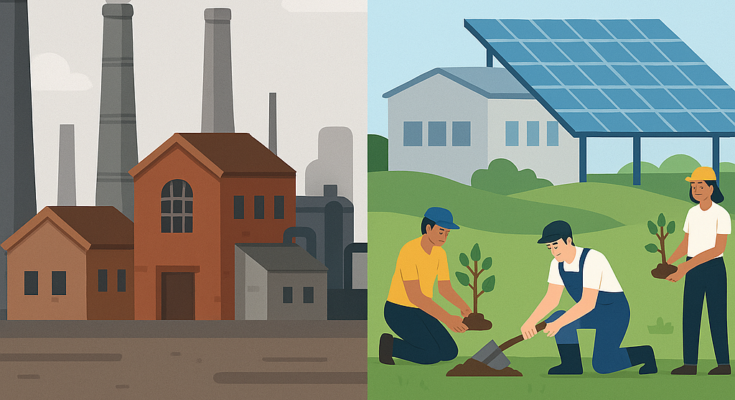Business Leaders: Pioneers of Profit and Sustainability
In a world where profit and purpose increasingly intertwine, business leaders are no longer just captains of industry—they’re architects of a sustainable future. From boardrooms to global markets, these visionaries balance innovation with responsibility, reshaping economies while tackling pressing challenges. Let’s explore their evolving role and how they’re rewriting the rules of success.
The DNA of a Modern Business Leader
Today’s trailblazers share key traits:
- Innovation: They’re problem-solvers, turning gaps in the market into opportunities. Think of the entrepreneur who replaces plastic packaging with compostable materials overnight.
- Risk-Taking (With Precision): Calculated gambles define them. Imagine betting on solar energy in a fossil-fuel-dominated market—and winning.
- Leadership: They don’t just manage teams; they inspire movements. Picture a CEO rallying employees around a zero-waste mission.
- Agility: When economic storms hit, they pivot fast—like shifting from brick-and-mortar to e-commerce during a pandemic.
Hurdles on the Path to Success
Even the sharpest minds face obstacles:
- Financial Tightropes: Securing funding in a competitive landscape feels like solving a puzzle blindfolded.
- Global Rivalry: A local bakery now competes with Amazon. Survival demands creativity.
- Economic Whiplash: Tariffs, inflation, and supply chain chaos test even the sturdiest business models.
Why Business Leaders Are Economic Superheroes
- Job Creators: From Silicon Valley startups to family-run farms, they’re the engine of employment.
- Innovation Incubators: They turn sci-fi ideas into reality—like lab-grown meat or carbon-capture tech.
- Global Connectors: Expanding across borders, they blend cultures and markets (and occasionally, cuisines).
Sustainability: The New Business Imperative
Gone are the days of profit-at-all-costs. Here’s how savvy leaders bake sustainability into their DNA:
1. Make Sustainability Your North Star
- Mission Matters: Patagonia’s iconic tagline—“We’re in business to save our home planet”—isn’t marketing fluff. It’s their legal mandate as a Benefit Corporation.
- Set Bold Targets: Like Unilever’s pledge to halve its environmental footprint by 2030.
2. Green Your Operations
- Energy Overhaul: IKEA powers 90% of its stores with renewables—soon to hit 100%.
- Waste Warriors: Chipotle’s compostable bowls and “Real Foodprint” tracker show sustainability sells.
3. Empower People & Communities
- Fair Play: Starbucks’ ethical coffee sourcing uplifts 400,000 farmers globally.
- Diversity Drives Growth: Companies with inclusive teams outperform peers by 35% (McKinsey).
4. Innovate or Stagnate
- Tech for Good: Tesla’s electric cars and solar roofs aren’t gadgets—they’re climate weapons.
- Circular Economy: IKEA now buys back used furniture, refurbishes it, and resells at a discount.
5. Transparency Wins Trust
- Report Relentlessly: Unilever’s annual sustainability reports are bibles for eco-investors.
- Own Mistakes: When Nestlé faced deforestation claims, it mapped 100% of its palm oil supply chain—publicly.
Sustainability Stars: Who’s Nailing It?
- Patagonia: “Don’t buy this jacket” ads urged conscious consumption. Sales soared.
- Tesla: Turned EVs from niche to norm—and made shareholders trillionaires.
- Unilever: Dove’s “Real Beauty” and Ben & Jerry’s activism prove ethics boost loyalty.
- Eileen Fisher: Fashion brand recycling 1.4 million garments—because landfills aren’t chic.
The Bottom Line
The future belongs to leaders who see profit and sustainability as partners, not rivals. As climate deadlines loom and consumers vote with wallets, businesses that ignore this shift risk becoming relics. The question isn’t if to go green—it’s how fast.


